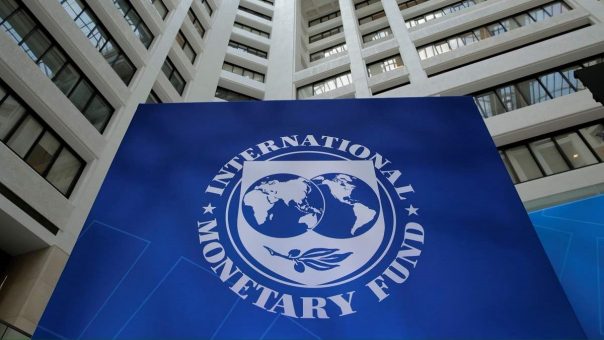Finance
Oyedele: Tinubu administration has reduced tax burden on Nigerians

…No new taxes introduced
The Federal Government says President Bola Tinubu’s administration has not introduced new taxes but has instead taken deliberate steps to reduce the tax burden on Nigerians and businesses through sweeping reforms.
Chairman of the Presidential Committee on Fiscal Policy and Tax Reforms, Taiwo Oyedele, speaking on national television, said the administration’s priority is to simplify the system, grant relief to workers, and ease the burden on businesses.
He explained that from January, Nigerians earning ₦100,000 or less a month will no longer pay personal income tax. “That is above the minimum wage,” Oyedele said. “Even middle-class Nigerians earning up to ₦1.8 or ₦1.9 million annually will see reductions. Only the very high-income earners will pay slightly more, in order to protect the vulnerable.”
Businesses are also beneficiaries of the reforms. The exemption threshold for corporate income tax has been raised from ₦25 million to ₦100 million in annual turnover. “If you make up to ₦100 million a year, you don’t need to pay corporate income tax at all. It is zero percent,” he explained.
New reliefs have also been introduced to leave more disposable income in people’s pockets. For the first time, workers can deduct 20 percent of their annual rent before paying tax. Pension contributions, insurance payments, and housing savings also reduce taxable income. “We are saying that people should not be overburdened. These reliefs are deliberate measures to support workers,” Oyedele noted.
Reforms to Value Added Tax are expected to lower the cost of essential goods and services. Food, water, education, and healthcare will not attract VAT. More importantly, producers will now receive refunds on VAT incurred in production. “For example, bakers will not only sell bread tax-free, but government will also refund the VAT they pay on sugar, flour, or fuel. That means cheaper bread for Nigerians,” he said.
Another major step has been the reduction of multiple taxation. Nigeria previously had more than 60 separate levies, ranging from bicycle tax to radio and television levies. “What this government is doing is harmonising them into a single-digit number, less than 10. That will end harassment and ease business,” he assured.
Oyedele also addressed concerns about deductions on bank deposits. “Whatever is in your bank account does not translate to taxable income. It could be a loan, a gift, or money held for someone. The law is clear: you declare your income yourself. Government only validates with intelligence. Gifts will not be taxed,” he explained.
Nigerians, he added, will now be entitled to faster refunds. “If you are owed VAT refunds, government must pay you back within 30 days. That is your money. But if you make false claims, you pay a 200 percent penalty. This rewards honesty and punishes evasion,” he said.
On the petroleum tax surcharge being debated, Oyedele clarified that it was not introduced by the Tinubu administration. “This surcharge was introduced in 2007. At that time, it wasn’t implemented because government was subsidising as well,” he said. “While we were doing this reform, it wasn’t even in the original proposal. But in the process of working on the bills, it was agreed that we shouldn’t have different agencies collecting taxes. The law mandated FERMA to collect it—40 percent for federal roads, 60 percent for states. But it was never implemented.”
He stressed that the current government had only ensured the surcharge was properly captured in law for transparency and orderly implementation, not that it would be immediately imposed.
According to him, the Tinubu administration has reduced the tax burden on Nigerians by protecting low-income earners, granting relief to workers, exempting small businesses, harmonising levies, and ensuring lower prices of food and essentials through VAT reform.
“This government is not introducing new taxes. It is simplifying, harmonising, and reducing burdens. About 97 to 98 percent of Nigerians will either pay no tax or less tax under the new law. The goal is to grow businesses, protect workers, and expand prosperity,” Mr. Oyedele concluded.

Finance
LECON Finance disburses over N30b to companies to drive economic growth

LECON Finance Company Limited, a Central Bank of Nigeria (CBN)-licensed finance company, says it has disbursed over N30 billion in leases to businesses nationwide.
This achievement reinforces its pivotal role in powering Nigeria’s productive sectors and expanding the country’s leasing ecosystem.
“Since inception, we have financed over 2,000 projects across key industries including agriculture, healthcare, logistics, manufacturing, education, transportation, construction, and renewable energy. In the last five years alone, the company has supported more than 230 projects, enabling enterprises to acquire vital equipment and assets that enhance productivity, drive innovation, and create jobs,” it said in a statement.
Through its strategic leasing and financing solutions, LECON has emerged as a catalyst for inclusive and sustainable economic growth. The company focuses on sectors critical to Nigeria’s long-term prosperity — food and agro-processing, mining and solid minerals, renewable energy and climate, healthcare and pharmaceuticals, ICT and telecommunications, and women-led enterprises.
By making productive assets accessible to smallholder farmers, schools, healthcare providers, transport operators, and emerging entrepreneurs, LECON is closing the financing gap that limits the potential of underserved groups. These interventions are transforming local industries and boosting Nigeria’s productivity.
Reaffirming LECON’s dedication to making leasing available to businesses, the Managing Director/CEO, Mrs. Ebehiriere Ehi-Omoike, said “we are on a mission to democratize access to productive assets for businesses of all sizes to create real impact. These milestones reflect our dedication to building a resilient and inclusive financial ecosystem,”
As one of the earliest institutions in Nigeria’s leasing industry, LECON remains a cornerstone of Nigeria’s leasing ecosytem having been instrumental in legitimizing leasing as a credible and effective financing tool for large corporates and MSMEs alike.
By offering flexible, asset-backed financing, LECON empowers businesses to invest in modern equipment without the heavy burden of upfront capital costs. This model has strengthened confidence in leasing as a sustainable growth instrument, helping enterprises expand and thrive.
The company continues to shape Nigeria’s leasing landscape through thought leadership and active participation in the Equipment Leasing Association of Nigeria (ELAN), where it is a pioneer member.
LECON’s strong institutional credibility and financial strength anchors its reputation for sound governance, risk management, and operational discipline which has earned it a consistent “A+” credit rating from Agusto & Co., thus confirming its robust financial health and institutional resilience.
As a CBN-licensed finance company and a subsidiary of the Bank of Industry (BOI), LECON operates with full regulatory compliance and a clear mandate to deliver financial solutions that promote inclusive growth and national development.
LECON’s heritage spans more than five decades. Established in 1970 under Nigeria’s indigenization policy as the Commonwealth Development Corporation (CDC), it was later acquired as a wholly owned subsidiary of the Nigerian Industrial Development Bank Limited (NIDB) — the precursor to today’s Bank of Industry (BOI).
In 1989, it became the Leasing Company of Nigeria (LECON) to reflect its focus on leasing. In 2022, the pioneer institution was rebranded as a legacy institution with a modern vision to LECON Finance Company Limited, signaling a new era of transformation, growth, and broader financial inclusion.
LECON’s N30 billion lease portfolio represents more than financial success — it reflects tangible economic and social impact. Through its leasing operations, the company has facilitated job creation across key sectors, improved productivity for local enterprises, financial inclusion for underserved entrepreneurs and empowerment of women-led and youth-driven businesses
Its project portfolio covers agro and food processing, healthcare, petrochemicals, education, transport, logistics, manufacturing, construction, renewable energy, solid minerals, mining, and aviation with each project contributes to a more resilient, diversified Nigerian economy.
As Nigeria continues to pursue economic diversification, LECON remains committed to driving inclusive and sustainable financing. The company’s mission is to enable businesses — large and small — to access the productive assets they need to grow, compete, and create long-term value.
Finance
IMF seeks autonomous central banks in stronger global system

The International Monetary Fund (IMF) has called on governments worldwide to build stronger institutions and ensure the independence of their central banks.
At the IMF Annual Meetings in Washington, DC, IMF Managing Director Kristalina Georgieva spoke yesterday at the Civil Society Town Hall Programme, part of the pre-opening events at the ongoing World Bank/IMF Annual Meetings.
The IMF chief also played down the impact of US tariffs on many world economies, saying the effect of the tariffs has decreased compared with the position at the April 2025 meetings.
She added that the private sector is currently much stronger than it was in April, signalling improvement in global economic performance.
She further acknowledged the devastating impact of high debt levels on world economies, urging countries to pursue more growth to reduce the burden of debt on their economies.
“The impact of tariffs is not as dramatic as we feared. US tariffs are lower today than they were last April.
“Many countries have chosen not to retaliate and are avoiding tit-for-tat actions, which is protecting world trade.
“There should be concerted efforts to bring debts down and support global economic recoveries, even as there is a need to identify pathways to resolving the debt crisis,” she said.
Georgieva called on countries to grow out of debt and create more development opportunities.
Reflecting on global progress over the decades, she said: “The average person today is much better off than, say, 30 years ago, but the averages conceal deep undercurrents of marginalisation, discontent, and hardship.
“Many people in many places—especially the young—are taking their disappointment to the streets: from Lima to Rabat, from Paris to Nairobi, and from Kathmandu to Jakarta, all are demanding better opportunities.”
She noted that the most important discussions at the Annual Meetings will focus on the global economic impact of these transformative forces and the policy turbulence we are experiencing.
“How is the world economy coping? Short answer: better than feared, but worse than we need.
“When we met in April, many experts—not us—predicted a U.S. recession in the near term, with negative spillovers to the rest of the world.
“Instead, the U.S. economy, as well as many other advanced and emerging markets and some developing countries, have held up.
“As our World Economic Outlook will explain next week, we see global growth slowing only slightly this year and next. All signs point to a world economy that has generally withstood acute strains from multiple shocks,” she said.
According to her, the resilience of global economies is attributable to improved policy fundamentals, private sector adaptability, less severe tariff outcomes than initially feared—for now—and supportive financial conditions—as long as they hold.
Finance
Economic recovery: IMPI predicts 17% fall in inflation

• Urges CBN to loosen grip on rates
Nigeria could end the year with its lowest inflation in nearly a decade, according to the Independent Media and Policy Initiative (IMPI), which has projected headline inflation to drop to 17 per cent by December 2025.
In its latest policy statement signed by Chairman Dr. Omoniyi Akinsiju, the think tank noted that the economy is experiencing one of its rare periods of disinflation, marked by five consecutive months of inflation decline.
The group, however, insists the Central Bank of Nigeria (CBN) must match this rare economic momentum by easing its restrictive monetary stance.
It urged the CBN’s Monetary Policy Committee (MPC) to begin easing the benchmark interest rate to consolidate gains.
“Empirically speaking, the Nigerian economy is now in a disinflationary dispensation. Nigeria recorded a rare disinflation in 2025, with inflation falling from 24.5 per cent in January to 20.12 per cent in August, the sharpest mid-year slowdown in over a decade”, IMPI said.
According to the group, three key factors have shaped the current inflation deceleration: the Central Bank’s decision to hold rates at 27.50 per cent, which curbed credit demand and speculative forex activities; relative stability in the foreign exchange market due to higher inflows from oil, remittances, and non-oil exports; and improved food supply following better harvests and calm in food-producing regions.
With inflation already below the Central Bank’s 21 per cent target for the year, IMPI said the momentum could push the figure down to 17 per cent by December, close to the Federal Government’s 15 per cent goal.
“Attaining this target has huge microeconomic implications,” it stressed, projecting that the MPC may cut the Monetary Policy Rate by at least 50 basis points at its next meeting and by as much as 200 basis points before year-end.
It also recommended lowering the Cash Reserve Ratio from 50 per cent to 35 per cent by December, saying this would ease the cost of credit, spur business expansion, and support job creation.
Beyond monetary policy, IMPI highlighted the recovery of Nigerian firms after steep losses triggered by the Federal Government’s 2023 decision to float the naira.
Following a sharp depreciation that saw the currency fall from N460/$ in mid-2023 to N1,535/$ by the end of 2024, several consumer goods companies—including BUA Foods, Cadbury, Nigerian Breweries, and Nestlé Nigeria—reported combined losses of over N418 billion in Q1 2024.
The think tank said the return of relative exchange rate stability, coupled with cost restructuring, has since reversed the trend.
“By Q1 2025, the same companies posted a combined pre-tax profit of N289.8 billion, and by Q2 2025, they had returned to a combined profit of N264 billion,” it noted.
IMPI argued that the sharp turnaround underscored how policy stability and market adjustments can restore investor confidence.
“This captures the context in which domestic and global commentators have returned a verdict of stability for the Nigerian economy,” the statement concluded.
-

 Art & Life9 years ago
Art & Life9 years agoThese ’90s fashion trends are making a comeback in 2017
-

 Entertainment9 years ago
Entertainment9 years agoThe final 6 ‘Game of Thrones’ episodes might feel like a full season
-

 Business9 years ago
Business9 years agoThe 9 worst mistakes you can ever make at work
-

 Art & Life9 years ago
Art & Life9 years agoAccording to Dior Couture, this taboo fashion accessory is back
-

 Entertainment9 years ago
Entertainment9 years agoThe old and New Edition cast comes together to perform
-

 Sports9 years ago
Sports9 years agoPhillies’ Aaron Altherr makes mind-boggling barehanded play
-

 Entertainment9 years ago
Entertainment9 years agoMod turns ‘Counter-Strike’ into a ‘Tekken’ clone with fighting chickens
-

 Entertainment9 years ago
Entertainment9 years agoDisney’s live-action Aladdin finally finds its stars




